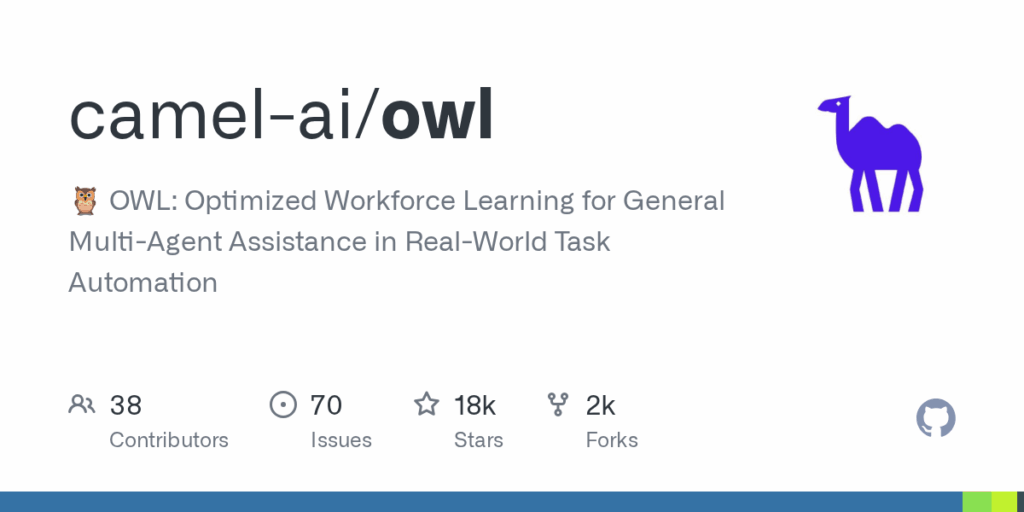Basic Information
OWL (Optimized Workforce Learning) is an open-source framework for designing, training, and running collaborative multi-agent workforces to automate real-world tasks. Built on the CAMEL-AI framework, the repository provides code, examples, experiment scripts, and deployment options to construct societies of specialized agents that interact dynamically, invoke tools, and execute complex workflows in parallel. It includes support for reproducible experiments on the GAIA benchmark and integration points for different LLM backends. OWL targets researchers and developers who want to build customizable multi-agent systems that handle multimodal inputs, web interactions, and document processing. The project emphasizes privacy-first local execution, parallel agent execution, and extensibility through configurable toolkits and the Model Context Protocol.








